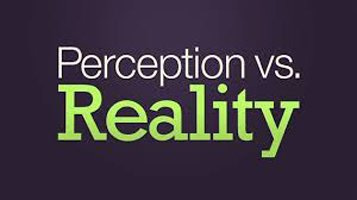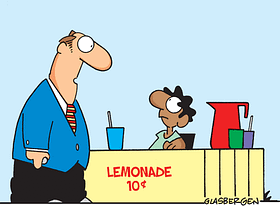A peculiar phenomenon has been occurring in the United States when it comes to the status of the economy versus the perception of economic conditions by the populace. I’d wager that the disconnect between the actual status of the economy and consumer perceptions has never been larger.
Let’s have a look at the economic data for 2023 first:
Consumer Price Index (inflation)

Employment

Jobless Claims

Stock market performance
Russell 2000

S&P 500

The graphs above demonstrate the strength of the job market, stock market, and rapidly declining rates of inflation. These are all indicators of a strong economy and the “soft landing” that the Federal Reserve set out to achieve when emerging from the Covid-19 pandemic. Interestingly, this data conflicts with the headlines that seem to be ever present in the news about layoffs at companies in all different industries. It just goes to show that the news media is bringing more attention to layoffs than they actually represent in the economy. This brings to mind a similar phenomenon in which a plane crash is covered non-stop in the media and leads to people’s fear of flying, yet flying is the safest form of commercial transportation – by far.
Now let’s take a look at the consumer polling data related to the economy:
Consumer Sentiment Poll

The above consumer sentiment data is absolutely shocking. March 2020 was after Covid-19 had begun sweeping the world and people were very optimistic about the economy! Even at the depths of the economic shutdowns, the sentiment data was much higher than it is today.
Consumer Expectations Poll

Consumer Economic Conditions Poll


What could possibly be driving this divergence between the actual strength of the U.S. economy and people’s perception of it? One theory I’ve seen is that the news coverage people consume is what dictates their opinion of the economy. In all honesty, it is quite scary that people tend to believe the “spin” that their news source puts on a statistic rather than just understanding the number reported. This wouldn’t be much of a problem if all the news outlets properly reported the economic statistics without any spin. But, we have seen time and again in modern times how much people are influenced by the television or online media they consume.
There has long been a distrust of government economic statistics by a certain subset of the population. Having worked directly with these statistics and the economists and statisticians who produce them for many years myself, I know that the wild conspiracy claims made by these people are 100% incorrect. However, the number of people subscribing to these conspiracy theories seems to be growing larger by the year. The topic of perception vs. reality has been studied extensively by psychologists and a Nobel Prize in Economics was even awarded for research into cognitive biases.
The most popular media outlets in the U.S. based on the number of viewers:
Television:
- Fox News
- MSNBC
- CNN
Online:
- Yahoo News
- New York Times
- CNN
- Fox News
- MSN
What are the ramifications of this disconnect if it persists or gets worse?
Perhaps the largest risk is that people vote based on their incorrect assumptions about the economy versus the true health of it. In many (most?) elections in this country, the economy is the most important issue for voters. It is exceedingly rare for a President to win re-election if there is a recession. But what if there is no recession, but voters are convinced they’re experiencing one? I think this exact scenario is a distinct possibility in 2024.
What can be done to educate the public on the actual meaning of economic statistics?
Unfortunately, my own experience with the general public’s knowledge of statistics and math is underwhelming. As long as people don’t understand how statistical sampling works, they are bound to be manipulated by the spin put on the economic statistics by their preferred news outlet.
I happened to have a conversation this morning with a very conservative individual who asked what I do for a living and as soon as I mentioned I was an economist, they decided to tell me everything they thought about how bad the current economy is because of who is president. It was ironic to have this conversation as I was getting ready to post a similar blog entry, but it just further solidified this strange dichotomy that I’m seeing in people’s perceptions versus reality. Will we, as a society, ever stop using political biases to dictate economic sentiment, or is this going to be the new normal in the age of social media and heavily biased news sources?





Leave a Reply